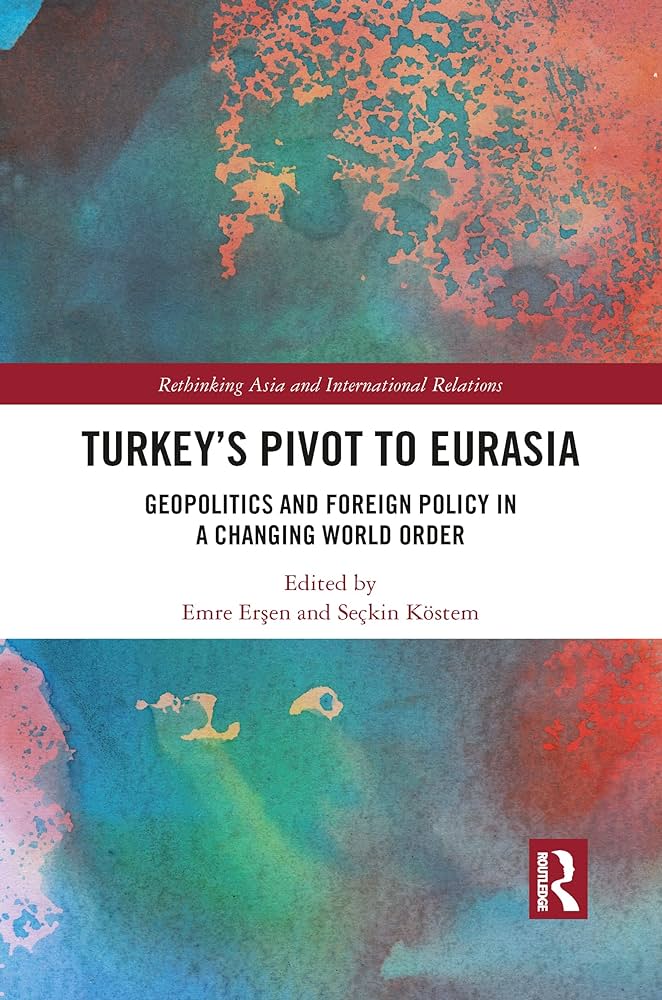

The dissolution of the Soviet Union at the end of the Cold War led Türkiye to become an important player on the international stage and shaped its foreign policy preferences. During this period, the independence of Central Asia and the South Caucasus strengthened Türkiye's vision of being a champion of democracy, economic liberalism and moderate Islam. Despite its NATO membership and historical ties with the West, Turkish diplomacy has been orientated towards strengthening its political and economic relations with Eurasian countries over the last 20 years. This has led to Türkiye's foreign policy strategies becoming more diverse and flexible. Türkiye maintains its presence as an important actor in the international arena, aiming to maintain its regional leadership role. In this context, Türkiye's dynamism in its international relations is taken into account at both regional and global levels. This study, edited by Emre Erşen and Seçkin Köstem, closely examines the changes in Türkiye's international relations scene. The authors consider Eurasia, which covers a vast geography, as a reflection of the upcoming multipolar world order. The authors aim to analyse the reasons behind Türkiye's recent turn towards Eurasia. They also discuss whether Eurasianism can be seen as a plausible option for Turkish foreign policy. The book emphasises that Ankara's deepening economic and political ties with major players such as Moscow, Beijing and Tehran have been shaped primarily as a result of the weakening of American hegemony. In the late 20th century, Türkiye, which had solid relations with the West, is now looking for ways to diversify its foreign policy away from the United States and the European Union. This change is particularly centred on Syria, but also manifests itself in other dimensions, such as Türkiye's rapprochement with Russia. Türkiye's assumption of new roles in the international arena and the development of various diplomatic relations, reshaping the dynamics in international politics are also covered. The book aims to analyse and discuss the various dimensions of Türkiye's relations and strategic rapprochement with Eurasia in the 21st century.
The book also focuses on the details of a number of popular ideological movements such as Pan-Turkism, Neo-Ottomanism and Eurasianism. The book explains the concept of Eurasianism using the term "Turkish Eurasianism". As the author emphasises, Eurasianism not only refers to the post-Soviet region, but also includes and seeks to strengthen Türkiye's relations with other Eurasian actors such as China, India and Iran. Another notable feature of this volume is its ability to bring together both concrete and intellectual variables throughout the chapters. In concrete terms, Türkiye's desire for deeper Eurasian co-operation was born out of the security and economic challenges facing the country. In this context, it is clear that security concerns are the main determinant of Türkiye's relations with Russia, whereas economic concerns dominate its relations with China. The book presents a general consensus that Turkish foreign policy is increasingly focussed towards Eurasia in the context of the evolution of the global order. However, some authors, such as Köstem and Baev, argue that sustaining this trend in the long term may face various challenges. This study makes an important academic contribution by addressing the Eurasian orientation of Turkish foreign policy. It not only discusses the concept of Eurasianism from a Turkish perspective, but also analyses Turkey's evolving relations with Eurasian countries over the last decade. Türkiye's new orientation is the result of a complex interaction of internal and external factors. However, it remains unclear whether this turn is underpinned by a long-term strategic vision. The sustainability of this turn and Turkey's possible asymmetric dependencies are also open to debate. This comprehensive study analyses the current trends in Turkish foreign policy.
Semanur Öncü is an intern at the Eurasia Center